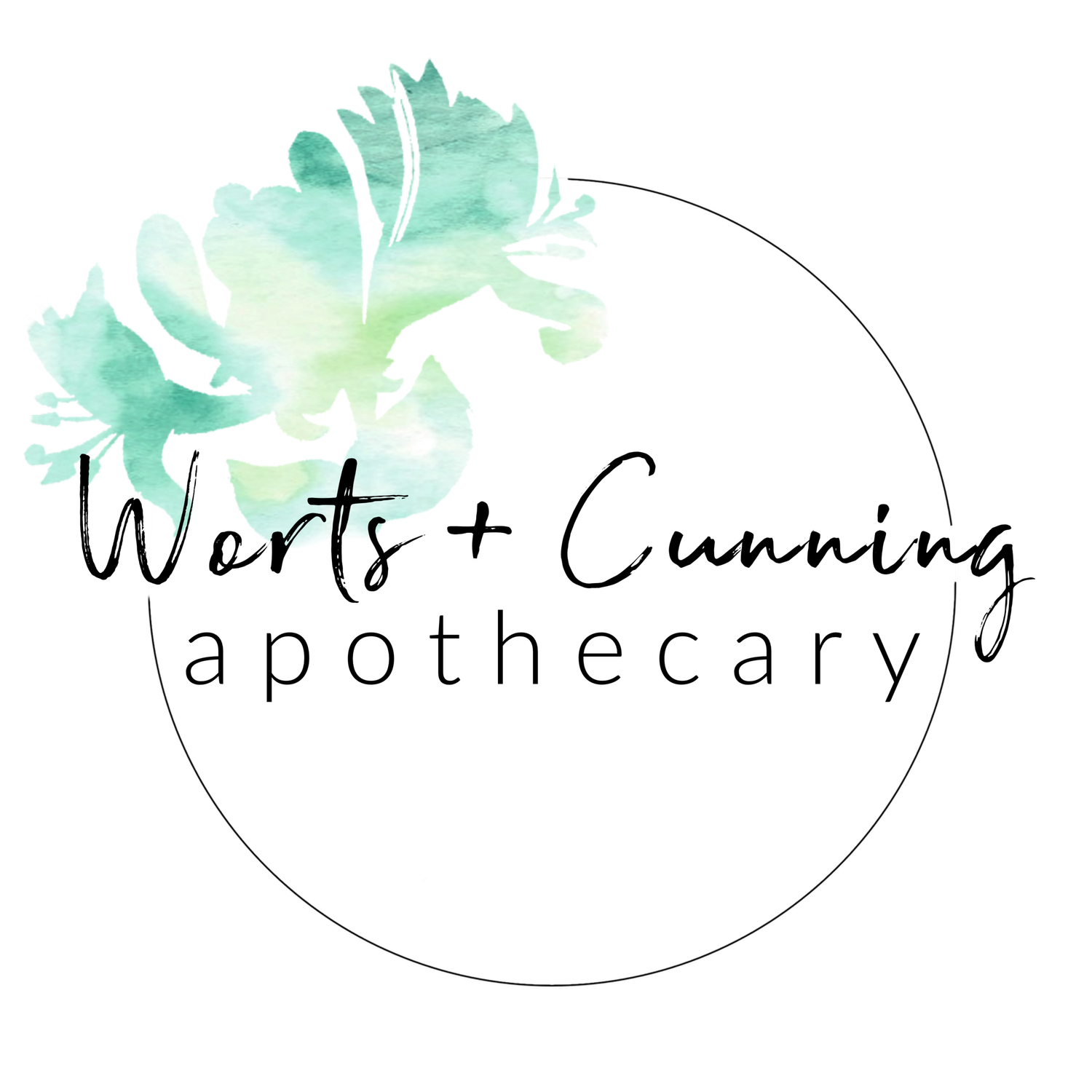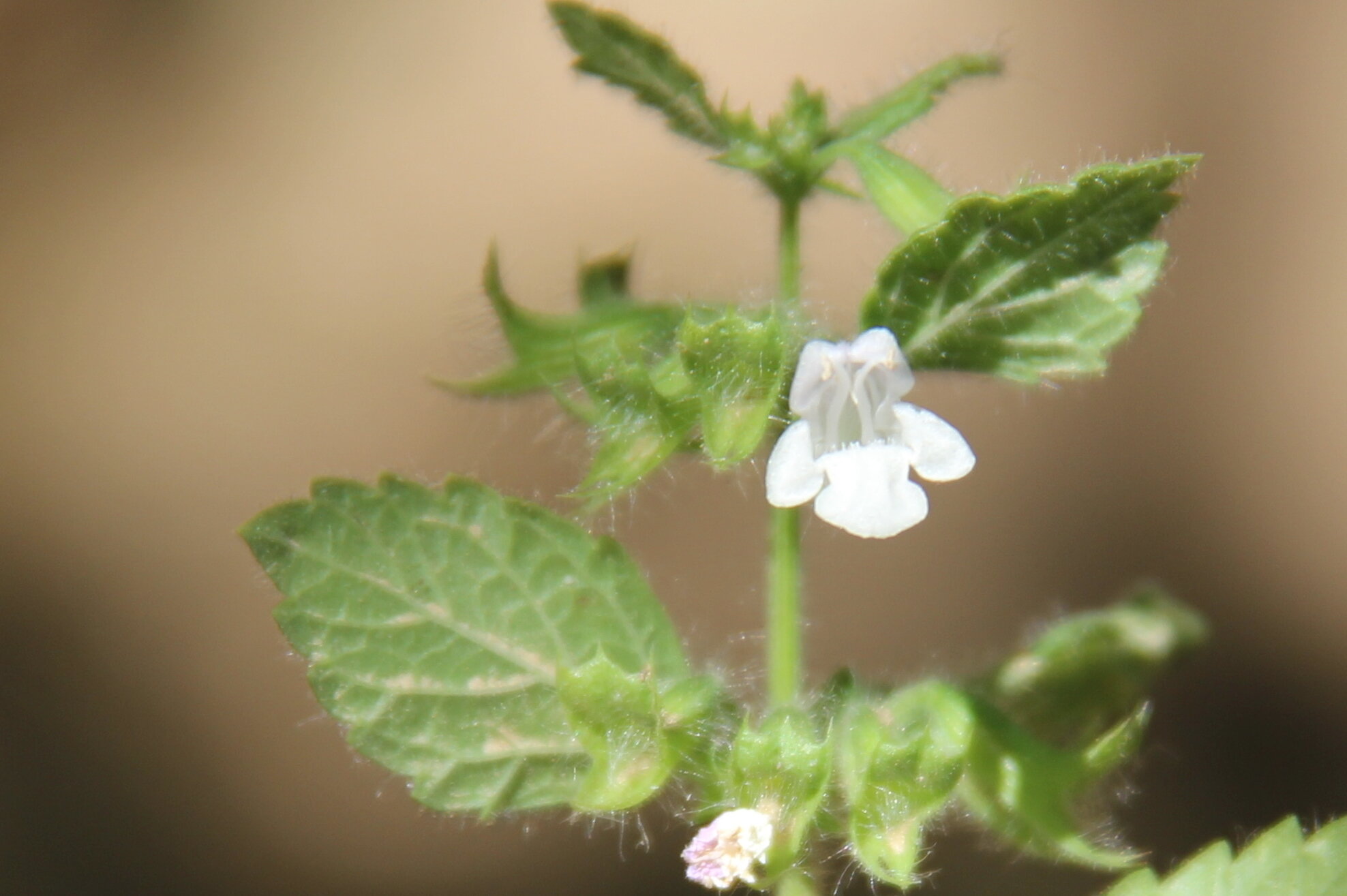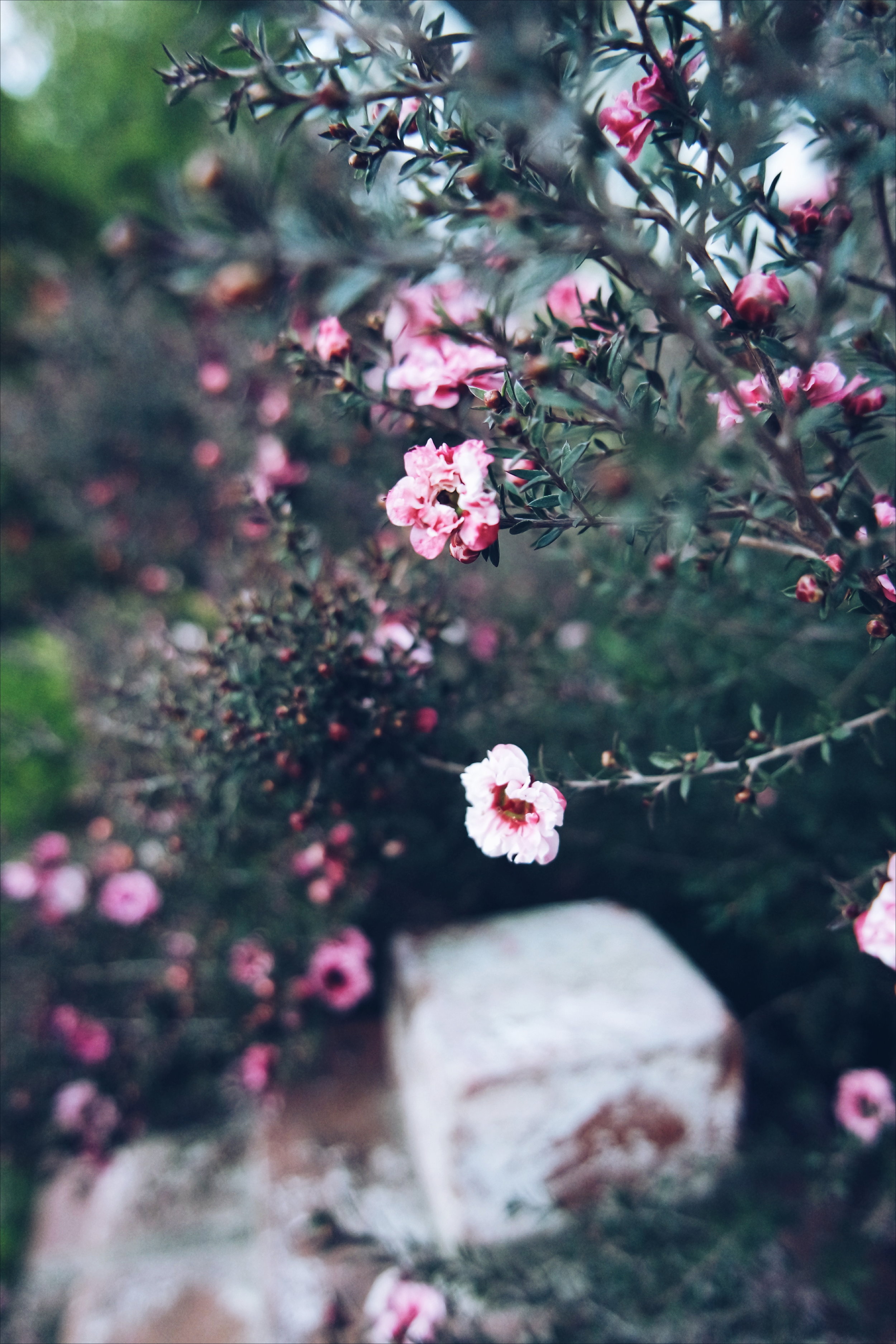Restoring Joy: Lemon Balm Plant Profile
One of the first herbs to emerge in my garden in the early spring is Lemon Balm (Melissa officinalis). It’s an herb that is usually introduced early in the education of a traditional western herbalist because it is not only versatile in its use, it is pleasant in its taste, and has very few contraindications. It’s a prized plant in the collection of remedies for children - gentle, effective, and a plant that little ones can learn to harvest from a young age. I’ve loved Lemon Balm a good long while for they are easy to love and love generously in return.
Along with Skullcap (Scutellaria lateriflora), I think they are a plant of our times, helping us to navigate the rapidly changing world of social engagement and technology without losing our connection to the collective soul. Lemon Balm helps us to resonate within ourselves and in the world around us, leading us back into community through our healing. And when we arrive back home, sweet Lemon Balm is there, shining our joy right back at us.
Lemon Balm
Melissa officinalis
Folk Names: Balm, Bee Balm, Dropsy Plant, Heart’s Delight, Melissa
Element : Water
Moon Phase: Full Moon
Zodiac Signs : Carries the energy of Cancer, Libra, and Pisces. A remedy for Aries, Leo, Virgo, and Aquarius.
Planets : Jupiter, Mercury, Venus
Tarot Cards: The Chariot (focus), The Wheel of Fortune (adaptation), 5 of Cups (to uplift the spirit), 10 of Wands (burnout). Learn more about the intersections of herbalism and the tarot.
Parts used : Aerial parts
Habitat : Native of southern Europe, but widely cultivated.
Growing conditions : Full sun to partial shade with moderate watering and well-drained soil.
Collection : Collect leaves and flowers throughout spring and summer.
Flavor : Sour
Temperature : Cool
Moisture : Dry
Tissue State : Heat, Damp/Stagnation
Constituents : Vitamin C, calcium, magnesium, essential oils, polyphenolics, resin, flavonoids, succinic acid
Actions : Antibacterial, antidepressant, antihistamine, anti-inflammatory, antioxidant, antispasmodic, antiviral, aromatic, carminative, cholagogue, diaphoretic, digestive, emmenagogue, febrifuge, hepatic, nervine, sedative, digestive, vasodilator
Medicinal uses : Paracelsus, an alchemist and astrologer, prized Lemon Balm as a remedy that was said to be capable of restoring life. Within traditional western herbalism, Lemon Balm is most often used to lift the spirits, invigorate stagnate body systems, nourish the nervous system, and improve overall vitality. English herbalist, Thomas Bartram, notes that Lemon Balm is used “[t]o strengthen the brain in its resistance to shock and stress” as well as its effectiveness in “protect[ing] the cerebrum of the brain” and treating “autonomic disorders - an action similar to modern tranquilisers… usually combined with Peppermint.” (1) Acting on the limbic system of the brain (instinct and mood), the herb is gently sedating and useful for hyperactivity, tension, and nervousness.
In my experience, Lemon Balm has been one of the most reliable herbs when it comes to not only helping to alleviate stress but to restore joy. An extended practice of drinking Lemon Balm tea over the period of a few months can help to support our ability to heal after traumatic events but also the accumulation of stress over the years. But it is also good for times of transition which is why it is an herb that I frequently recommend in the postpartum period which can test our ability to hold joy amongst lack of sleep, changing hormones, big life adjustments, and the general stresses that life with a newborn can bring. In general, I find that Lemon Balm helps us to walk that line between the things which stress us out and bring us joy. It’s a good herb for those dealing with general social anxiety, for example, where there is a need for connection but sometimes difficulty in showing up in community spaces.
Lemon Balm helps alleviate colds and the ‘flu as well as recovery from debilitating illness. It’s a great herb for feverish children - consider combining with Elder flower and berry (Sambucus nigra), Chamomile (Matricaria recutita), and Peppermint (Mentha piperita). Alternatively, use as a bath for those children who are resistant to taking tea. The hot tea is antiviral and can be drunk internally or used externally on cases of herpes simplex lesions.
As a carminative herb, Lemon Balm is excellent in cases of spasms along the digestive tract, relieving flatulence and indigestion. As it is tied to uplifting the spirits and relieving anxiety, the herb is well used in cases of “nervous stomach” where an upset stomach is caused by tension, depression, and stress. Headaches, migraines, insomnia, and other anxiety-induced symptoms are soothed by Lemon Balm. A great herb for children, Lemon Balm can be drunk as a tea before bed to alleviate nightmares and is good for those children who are prone to anxiety about school, exams, and general performance. In cases of hyperthyroidism, Lemon Balm has shown to have hormone-regulating effects that help to rebalance thyroid function. Anne McIntyre notes that Lemon Balm is used in Carmelite water for heart complaints which combines Lemon Balm and Lemon peel with nutmeg and angelica root as “a useful remedy when nervousness, agitation or depression cause heart pains, palpitations or an irregular heartbeat.” (2)
The sour taste of Lemon Balm helps to awaken the energies of the liver, helping us to process the sluggish and slower energies of winter (or wintering/stagnant states of the body regardless of the time of year) bring the energy of spring into our bodies. Sour tastes in herbs often let us know that vitamin C and other nutrients are present and usually indicate astringent qualities to a plant helping to tonify the body system it works on.
I love taking a bath infused with the hot tea of fresh Lemon Balm leaves and flowers. The plant has an energy that is similar to a soft caress, helping us to quiet our busy minds and be guided by our own healing. I suggest Lemon Balm to many who are in the healing fields, as well as empaths and highly sensitive people, since I find that it helps to open us up as conduits of healing energy without burning out from always trying to assist others and end up overextending ourselves. The herb is grounding without being overbearing which can be especially useful with Water signs (Cancer, Scorpio, Pisces) who respond best to grounding energy that allows them to still float gently in their energetic currents.
Topically, Lemon Balm can be used as an oil or liniment for its antihistamine properties. It’s a great plant to add to herbal steams to clear up congestion and relaxing spasmodic coughs. Use in mouthwashes for ulcers, gum infections, and general toothache. Combine with Mullein (Verbascum thapsus) and Garlic herbal oil for ear infections.
Magickal uses : The powers of Lemon Balm are of the ancient Bee Priestesses of Greece from which the herb gets its Latin binomial Melissa. The Melissae or “bees” were Priestesses of the Goddess Demeter, at other times said to be of Venus, and Melissa was also another name for the Moon Goddess Artemis. Bees are messengers of the Goddesss and so Lemon Balm imparts a certain quality of peaceful wisdom to those who ingest it. As an herb sacred to the Goddess and her Priestesses, it is an excellent addition to charms of loving, healthy relationships between friends, family, covenmates, and lovers. An excellent addition to baths, Lemon Balm fills the bather with amorous energy that can be applied to any number of goals.
The Lemon Balm Personality : The Lemon Balm person tends to be nervous and on edge. Panic attacks are a familiar experience and sometimes seems to be a primary way of engaging any stressful change in their life. Such constant state of worry and stress can lead to mental fatigue and burnout. Lemon Balm folks are often the helpers and givers in their relationships - they not only worry for themselves but they worry about everyone else, too. This brings about a state of spiritual restriction and emotional tension that often leads to debilitating burnout if not tended to preventatively. Lemon Balm folks need a release valve and the plant helps to reconnect the heart to the head, and deliver messages of calm when all seems topsy-turvy. One of the most healing works that Lemon Balm folks can take is finding a way back into community, learning how to be seen and held by others, adding their song to the buzz of those who love them.
Contraindications : May interfere with thyroid medications.
Dosage : Standard dosage. 1 – 30 drops 1:5 extract up to three times daily. 2 -3 teaspoons dried herb or 4 -6 grams fresh herb per 1 cup water.
Recipes
Spring + Summer Magick Herbal Tea
A simple tea to help you transition into the magick of the warmer seasons. Cooling, calming, and heart-supporting. Blend together the following herbs:
2 parts Lemon Balm (Melissa officinalis)
1 part Chamomile (Matricaria recutita)
1/4 part Calendula (Calendula officinalis)
This recipe can also be adapted into a tincture or herbal honey. Make into an herbal oil for a soothing topical treatment for bumps, bruises and sore muscles.
Dream Pillow
Make a dream pillow with blue fabric and the dried leaves and flowers of Lemon Balm at the Full Moon, charging it overnight under the Full Moon’s light. Place it under your pillow or bed to encourage divine dreaming and communication.
Lemon Balm Honey
Infuse raw honey with fresh Lemon Balm leaves and flowers to create a deliciously cool syrup for sore throats, fevers, and to aid recovery from illness.
I hope that you’re finding time to dwell in gardens during this season of Aries - whether it’s the unfolding season of spring in the northern hemisphere or the slow inward journey of fall in the southern hemisphere.
My Lemon Balm profile is available to download from The Plant Ally Library where you can access all of my plant profiles. If you want to learn more about Lemon Balm, they’re an ally I turn to during fire season, for community care, and they’re a wonderful friend for empaths and highly sensitive people.
This post was made possible through patron support.
❤︎ Thanks, friends. ❤︎
(1) Bartram, Thomas. Bartram's Enyclopedia of Herbal Medicine. Robinson, 1998. 48.
(2) McIntyre, Anne. Flower Power: Flower Remedies for Healing Body and Soul through Herbalism, Homeopathy, Aromatherapy, and Flower Essences. Holt, 1996. 158.













